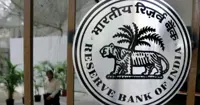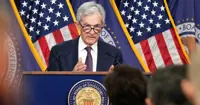Tit for tat: with visa curbs, India may restrict royalty payouts
22 Apr 2017
India will consider limiting royalty and technical fees to foreign companies if the country's services sector is hit by new immigration laws being pushed in the West. Officials said the commerce ministry was preparing a note on possible actions if trading partners took steps to reduce Indian services exports through visa curbs, The Telegraph reports.
 While the US is reviewing the H-1B visa process, Australia and the UK have already taken steps to curb visas to Indians.
While the US is reviewing the H-1B visa process, Australia and the UK have already taken steps to curb visas to Indians.
In Washington on Friday, finance minister Arun Jaitley took up the proposed curbs on H-1B visas by the Trump administration at a meeting with US commerce secretary Wilbur Ross.
Officials said over the last decade there had been a surge in the outgo of royalty and technical fees, especially after the government lifted the caps on royalty pay-outs in 2009.
Till 2009, there was a royalty cap of 8 per cent on exports and 5 per cent on domestic sales and a cap on fees or royalty paid for using trademarks of 2 per cent on exports and 1 per cent on domestic sales.
The government had removed the caps since then and theoretically a firm can now repatriate any amount as royalty.
Studies show that in 2012-13, some 71 MNCs earned a combined Rs4,838 crore from their Indian subsidiaries as royalty and technical fees. Their total dividend income was lower at Rs4,529 crore.
For example, the royalty paid out by Maruti Suzuki India to its Japanese parent has nearly tripled from 13 per cent in 2005-06 to 36 per cent of profits before tax in 2014-15, according to research firm IiAS.
The department of industrial policy and promotion is now planning to put a lid on such royalty payments.
The measures being planned include making such payments non-tax-deductible, particularly for royalties on trademarks and brands; linking payments to new research inputs from the foreign parent; and regulating the amount that can be paid to a related company by simply placing a cap in percentage terms of gross sales.
''The finance ministry is against the last – that is a percentage cap - as they say this affects transfer of new technology. Other innovative ways are being considered,'' officials said.
Jaitley meets Ross
Officials also said that Jaitley's meeting with Ross, billed as the first cabinet level interaction between the two countries, comes in the wake of a meeting between Prime Minister Narendra Modi and US National Security Adviser Lt Gen H R McMaster on defence ties between the two countries.
While Jaitley made out a case for Indian IT firms being allowed their normal quota of temporary work visas for software engineers, Ross tried to address concerns by pointing out that the US had merely started a process of reviewing the visa category and no decisions on curbs had been taken.
Jaitley outlined the significant contributions the skilled Indian professionals have made to the US economy and expressed hope that the US administration will take this aspect into consideration while taking any decision.
Ross is understood to have said that whatever the outcome of the review process, the Trump administration's objective is to have a merit-based immigration policy that gives preference to highly-skilled professionals.
The executive order signed by Trump earlier this week calls for a review of H-1B visas by the departments of state, labour, homeland security and justice.
The H-1B visa is a non-immigrant visa that allows US companies to employ foreign workers in speciality fields. Indian technology companies depend on it to hire tens of thousands of employees each year for their US operations.
The US market accounts for about 60 per cent of the revenue of the Indian IT industry.




.webp)


























